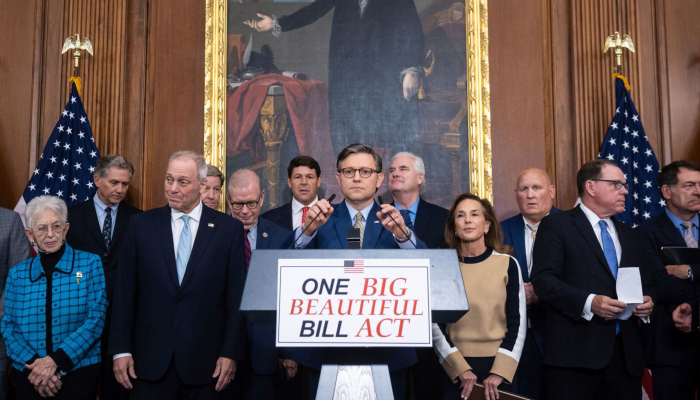
The House on Thursday passed the signature piece of legislation of President Trump's second term, approving a massive bill that includes trillions of dollars in tax and spending cuts while ramping up funding for defense and implementing the administration's immigration agenda.
The lower chamber voted 218 to 214 to approve the measure, with two Republicans, Reps. Thomas Massie of Kentucky and Brian Fitzpatrick of Pennsylvania, joining all Democrats in opposing the bill. The Senate passed the legislation, dubbed the "big, beautiful bill," earlier this week.
Who gains and who pays?
Corporate America
Corporations are betting they will benefit from the legislation making permanent the tax breaks in the 2017 Tax Cuts and Jobs Act.
The package would restore a tax break from the 2017 tax package that allowed businesses to fully write off the cost of equipment in the first year it was purchased. The incentive has been phasing out since 2023.
Manufacturers
Manufacturers are especially happy that the bill would make significant changes to how the US tax code treats the construction of new manufacturing facilities.
Businesses will be allowed to fully and immediately deduct the cost of building new manufacturing facilities. This temporary provision is retroactive to January 19, 2025 and continues for construction that begins before January 1, 2029.
Small businesses and partnerships
The National Federation of Independent Business, the leading small business lobbying group, praised the legislation for making permanent a special deduction for the owners of certain pass-through entities who pay businesses taxes on their individual tax returns.
High-income Americans
The net income for the top 20% of earners would increase by nearly $13,000 per year, after taxes and transfers, according to an analysis of a near-final version of the Senate bill by Penn Wharton Budget Model.
That amounts to a 3% average increase in income for those households.
Low-income Americans
Many people at the lowest end of the income ladder would be worse off because the package would enact historic cuts to the nation’s safety net program, particularly Medicaid and food stamps.
Hospitals
Hospitals are not happy with the health care provisions of the bill, which would reduce the support they receive from states to care for Medicaid enrollees and leave them with more uncompensated care costs for treating uninsured patients.
Clean energy and EVs
The Senate removed a last-minute excise tax on wind and solar that experts warned would have been a “killer” for the clean energy industry.
However, the Senate bill still strips tax incentives for wind, solar and other renewable energy projects by 2027 and gives developers stringent requirements to claim them.












